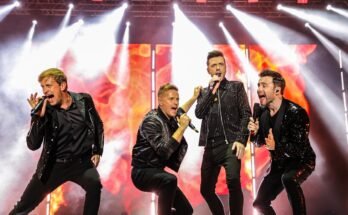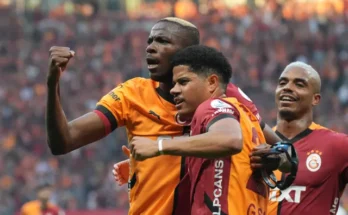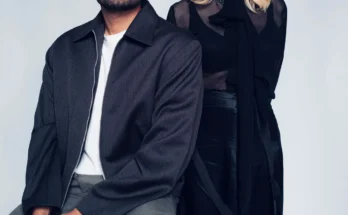On June 8, 2006, Madonna brought her electrifying Confessions Tour to the LTU Arena in Düsseldorf, Germany, captivating thousands of fans with a masterclass in reinvention, showmanship, and musical legacy. This stop marked a key moment in what would become one of the most visually striking and thematically provocative tours of her career—and of pop history.
The Context: A Queen in Her Disco Revival Era
The Confessions Tour followed the release of Madonna’s 2005 album Confessions on a Dance Floor, a critically acclaimed return to her dance roots. Produced alongside Stuart Price, the album fused disco, house, and electronica in a seamless, continuous mix, drawing comparisons to Donna Summer and Giorgio Moroder while still sounding distinctly modern. The record spawned several hits, including the global smash “Hung Up”, which famously sampled ABBA’s “Gimme! Gimme! Gimme! (A Man After Midnight)”—one of the rare samples ABBA ever approved.
By the time she reached Düsseldorf on June 8, Madonna was in peak form. At 47, she was performing with the vigor and stamina of a 20-year-old, serving not just choreography and vocals but a theatrical narrative that pushed boundaries and provoked thought.
The Show: A Roller Disco Church of Provocation and Joy
The Confessions Tour wasn’t just a concert; it was a full-blown multimedia experience. Divided into four thematic acts—Equestrian, Bedouin, Never Mind the Bollocks, and Disco—each section told a different part of Madonna’s personal and political journey.
The Düsseldorf audience witnessed an explosive opening with “Future Lovers/I Feel Love”, where Madonna entered riding a disco-horse, clad in leather and commanding the stage like a futuristic dominatrix. She led fans through a journey of reflection, rebellion, and redemption, performing hits like “Like a Virgin”, “Jump”, “Music”, and the deeply controversial “Live to Tell”—which she sang while suspended on a mirrored crucifix, drawing fire from religious groups and widespread media attention.
But controversy was never something Madonna shied away from—in fact, she embraced it as part of her artistic dialogue. Her Düsseldorf show embodied this philosophy, provoking not for shock value, but to challenge norms around politics, faith, sexuality, and feminism.
A Moment of Activism: “Sorry” and the World’s Cries
The performance of “Sorry” in Düsseldorf—like on other stops—featured imagery of global conflict, war-torn countries, and statistics of suffering. This segment was a poignant reminder that, for Madonna, pop culture was not separate from activism. Her ability to infuse dance music with messages about injustice made the show as intellectually engaging as it was entertaining.
The Crowd: European Energy at Its Peak
German fans are famously passionate, and the Düsseldorf crowd delivered. The LTU Arena, packed with around 40,000 fans, vibrated with energy. The choreography, the costumes (especially the mirrorball leotard and purple riding outfit), and the high-concept visuals were met with roaring applause and devotion. Fans—many clad in 80s gear, glitter, or leather—relished every minute, singing along to classics and newer hits alike.
Legacy of the Moment
June 8, 2006, in Düsseldorf was more than just another date on a world tour. It was part of a larger chapter in Madonna’s storied career that demonstrated how she remained, two decades after her debut, a cultural force impossible to ignore.
The Confessions Tour would go on to become one of the highest-grossing tours ever by a female artist at the time, earning over $194 million. The tour set a new bar for live performances, merging concert with performance art and influencing a new generation of artists from Lady Gaga to Beyoncé in how they would conceive and stage their own world tours.
Conclusion: A Night to Remember
Looking back at June 8, 2006, it’s clear that this was not just a date in Madonna’s touring schedule. It was a demonstration of the power of pop to inspire, provoke, and transform. In Düsseldorf, Madonna didn’t just sing her songs—she embodied them, redefined them, and used them as a platform to speak to the world.
Nearly two decades later, fans who were there still speak of the magic in the air that night. And for those who weren’t, the legacy of the Confessions Tour—on that glittering, defiant night in Germany—continues to echo in the evolution of pop performance.
Would you like me to include photos, videos, or memorabilia references related to this event?


